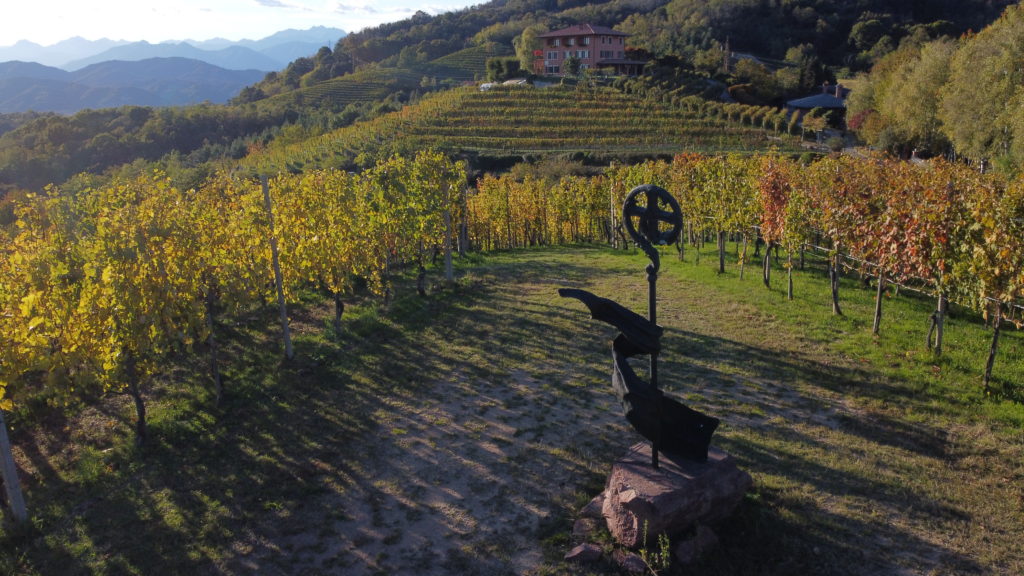Piedmont is among the world’s richest regions when it comes to wine culture. Its hilly landscapes are home to a plethora of wineries offering the perfect blend between tradition and innovative spirit.
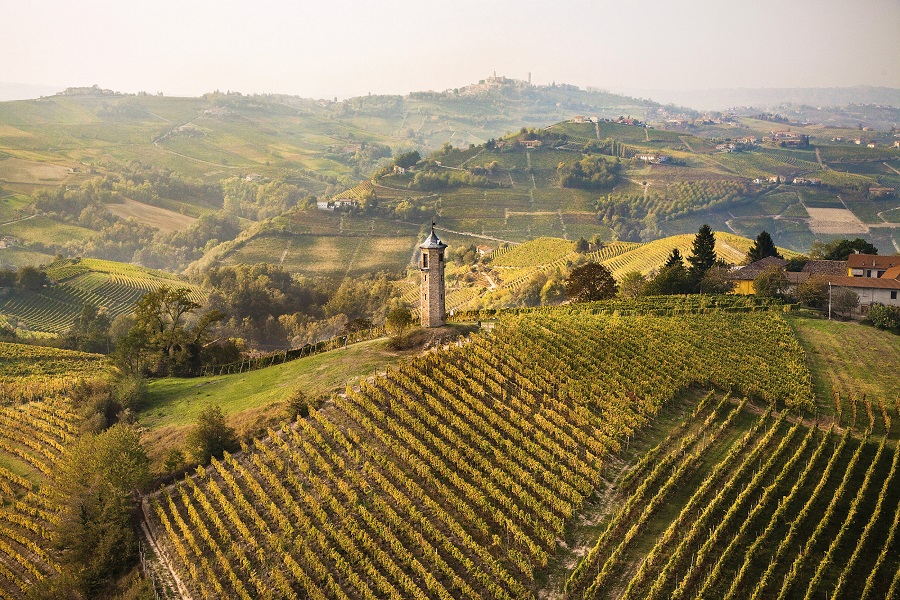
Michele Chiarlo’s ‘Nivole’ vineyards (Photo: Andrea Pesce, courtesy of Michele Chiarlo)
Piedmont’s wine culture is famous for its noble reds, but on closer inspection, what it really thrives on is avant-gardism and variety. Five of its wine-growing subregions have been granted UNESCO World Heritage status, thanks to age-old traditions which celebrate the relationship between human labour and the surrounding land. Among them, the Langhe area stands out for its Nebbiolo-covered landscapes punctuated by castles and hilltop villages – the place to go for a Barolo experience. But compelling winery tours are available all across the region, unlocking many other excellent products such as Barbaresco, Barbera, Gavi and Moscato.
La Raia
Wine goes hand in hand with biodynamic agriculture at La Raia, a young and innovative project in the heart of the Gavi region. The tour starts in the 48-hectare vineyards and then moves on to the cellar, where technology blends with local traditions. As an example of the latter, the stunning pisé (rammed earth) facade won’t go unnoticed. A contemporary art path curated by the in-house foundation is part of the experience, as well as the Locanda guesthouse, which comprises rooms, a restaurant and a spa. Gavi is the flagship wine here, while those keener on reds can opt for a joint tour with the sister winery Tenuta Cucco.
Str. di Monterotondo, 79, 15067 Novi Ligure AL / Visit website
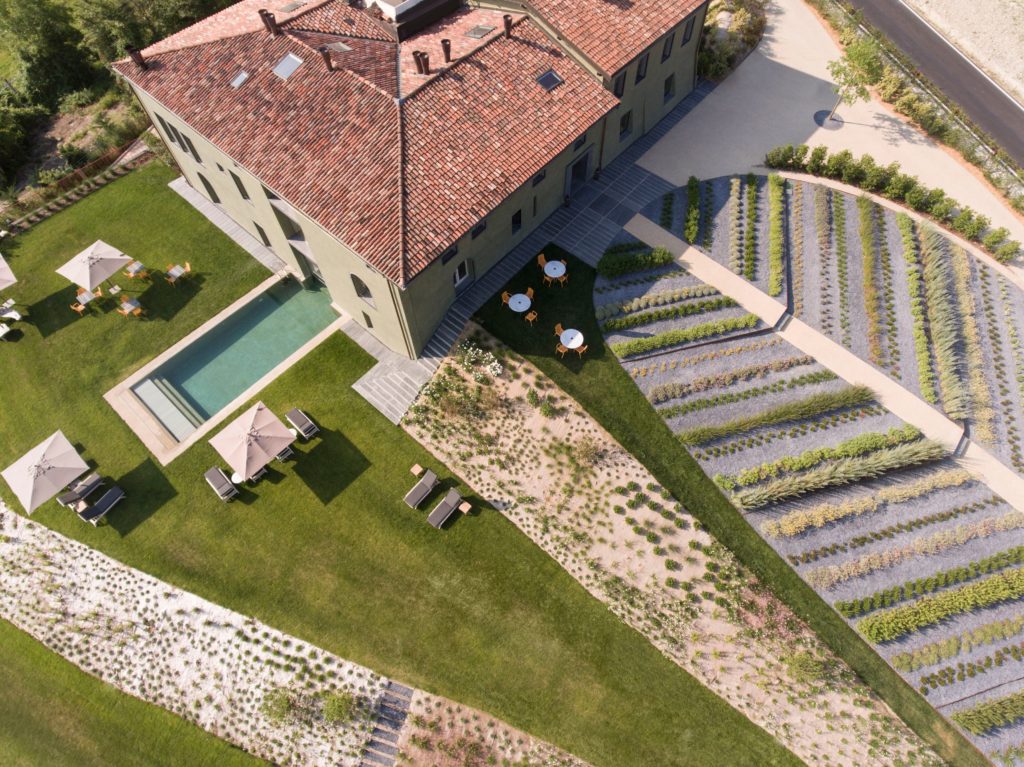
A view over La Raia (Photo: courtesy of La Raia)
Marchesi di Barolo
Near the castle of Barolo, this family-run winery takes visitors to the very roots of Piedmont’s most prestigious red. The historic cellars belonged to the local marquisate until it disbanded in the mid 1800’s, and was acquired in 1929 by Barolo pioneer Pietro Abbona, along with his siblings Ernesto, Marina and Celestina. The sixth Abbona generation is today at the helm of the company, which has evolved to include a restaurant, a wine shop and a tasting room. The most ancient barrels in the cellars will catch the eye of history enthusiasts, while the private collection of bottles dating as far back as the 19th century is equally impressive.
Via Roma, 1, 12060 Barolo CN
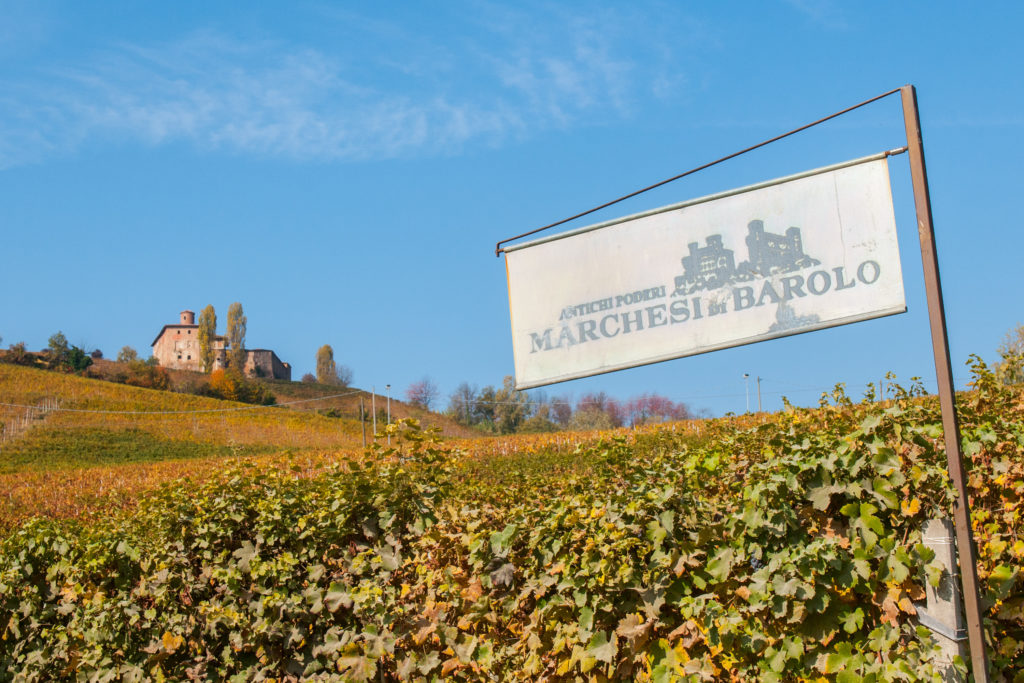
Vineyards at Marchesi di Barolo (Photo: courtesy of Marchesi di Barolo)
Elvio Cogno
Surrounded by 11 hectares of vineyards, this hilltop farmstead looks out on the small town of Novello. The winery’s founder took his first steps as a winemaker to supply the family restaurant, then made a name for himself in the industry starting from the 1950s. An experimental vein coupled with traditional practices has been defining the winery over the decades, making it a reference point in this part of Langhe. The wine range includes four varieties of Barolo as well as other reds such as Barbaresco, Barbera and Dolcetto. Two tour options are available, one of which focuses exclusively on the Barolo range.
Località Ravera, 2, 12060 Novello CN
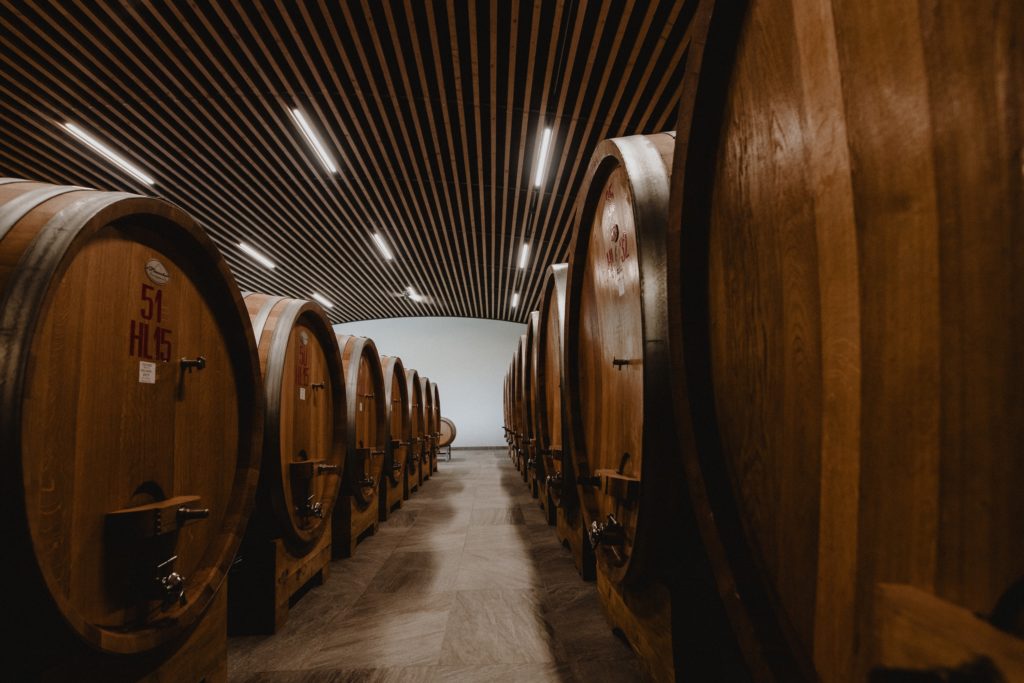
Rows of barrels in Elvio Cogno’s cellar (Photo: courtesy of Elvio Cogno)
Cantina dei Produttori Nebbiolo di Carema
Lending its name to a Nebbiolo wine once popular with popes and royals, the village of Carema lies in a valley in northwestern Piedmont. The winery and surrounding terraces are carved into the hillside, creating a picturesque setting for viticulture. In 1960, this cooperative of winemakers set out to not only promote the local red wine, but also preserve their centuries-old growing culture. Around a hundred producers are today members, and their communal cellar is open to visits by appointment. Carema and Carema Riserva are the wines to look out for in a tasting session.
Via Nazionale, 32, 10010 Carema TO
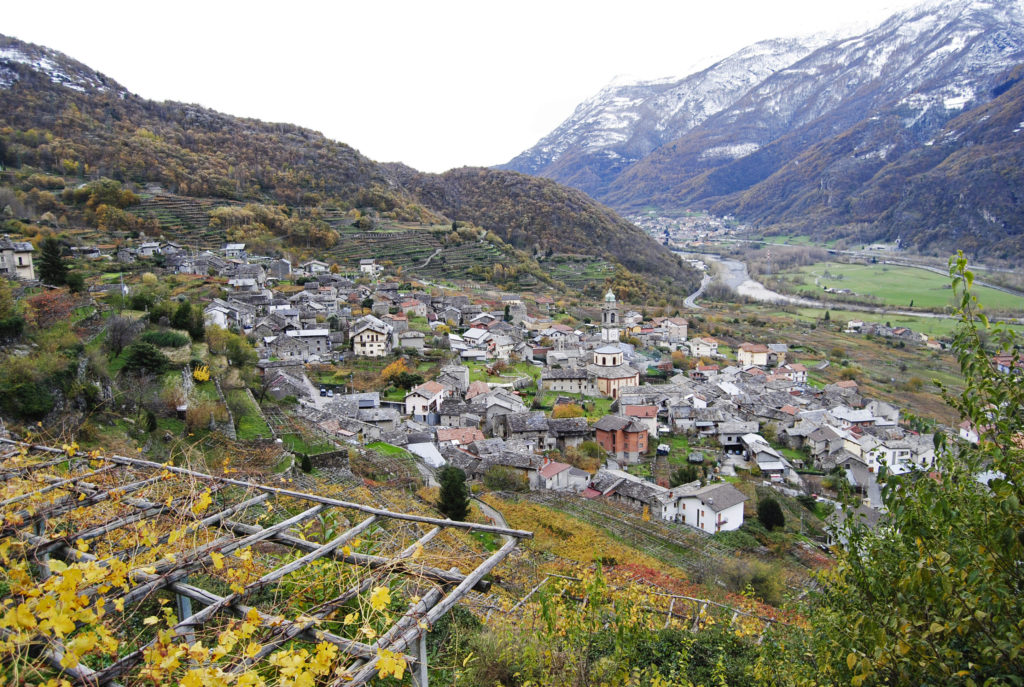
Carema and its terraced vineyards (Photo: courtesy of Cantina dei Produttori Nebbiolo di Carema)
Travaglini
Travaglini has long been established as a leading winery in Gattinara, a small town in northern Piedmont. The volcanic origin of this region’s soil lends unique features to its Nebbiolo wines – an elegant blend of mineral, sapid and sour notes. Over the course of five generations, the Travaglini have honed a non-invasive approach to winemaking, paired with a keen propensity for research and innovation. The latter is best represented by the signature ‘crooked bottle’, originally designed in 1958. Visitors can choose from wine experiences that almost feel tailor-made, with five different options available.
Via delle Vigne, 36, 13045 Gattinara VC
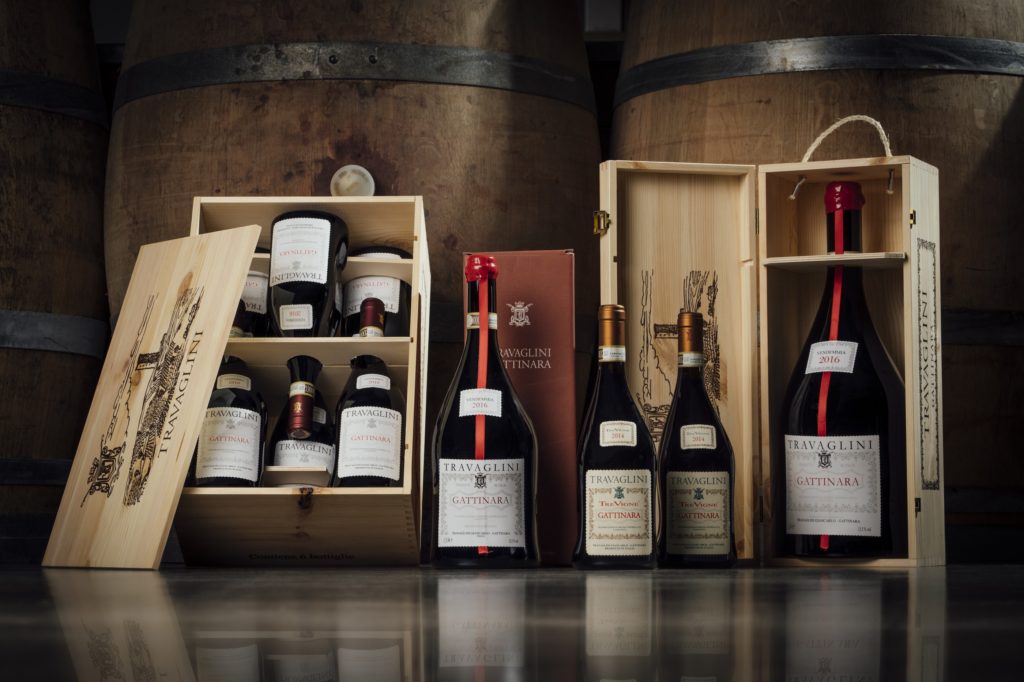
Travaglini’s signature crooked bottle (Photo: courtesy of Travaglini Gattinara)
Ceretto
Going back nearly a hundred years, Ceretto comprises historic vineyards and cellars scattered across the Langhe region. Nebbiolo, Barbaresco and Barolo feature prominently in the wine list, which guests can explore through a range of tasting options. The project also includes a three-Michelin-starred restaurant, as well as a fine patisserie workshop offering a hands-on experience revolving around the much-celebrated local hazelnut. Contemporary art and visionary architecture create a link between the tradition of the surrounding land and its future, with highlights including the ‘Cube’ vantage point and the colourful ‘Chapel of Barolo’.
Località S. Cassiano, 34, 12051 Alba CN
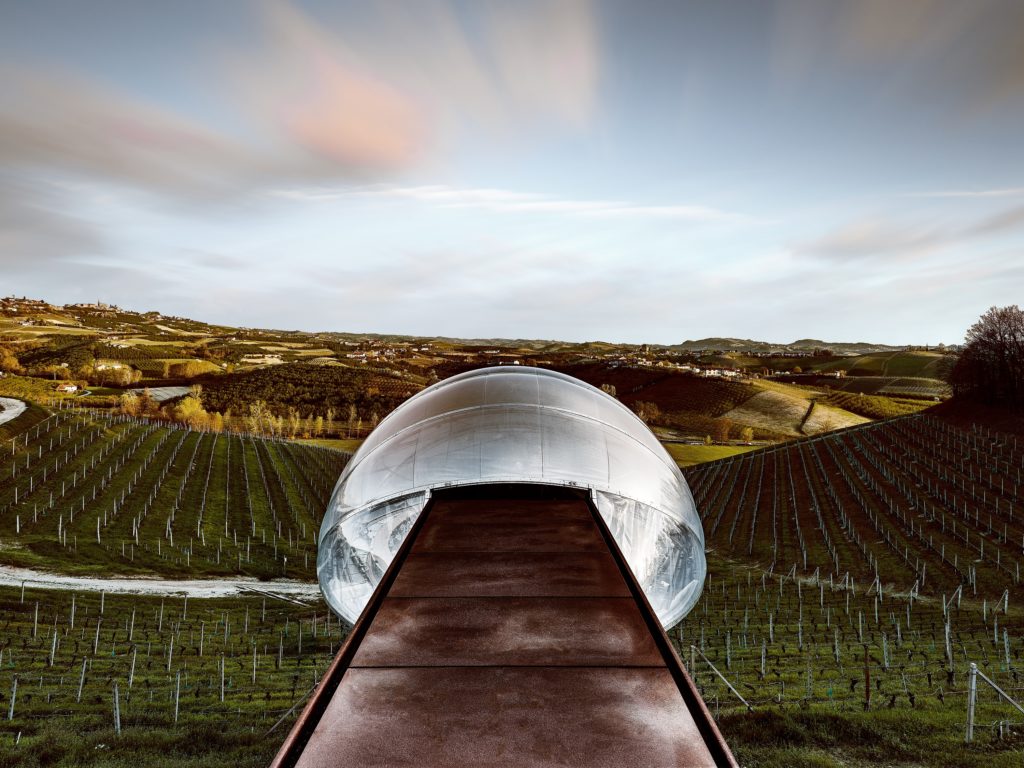
‘The Grape’, at Monsordo Bernardina Estate (Photo: Marco Varoli, courtesy of Ceretto)
Massolino
In Serralunga d’Alba – one of the eleven localities certified to produce Barolo – the Massolino have been in the wine trade for over a hundred years. The current fourth generation boasts a recently-renovated cellar as well as 23 hectares of vineyards, looked over by a stunning panoramic terrace. The atmosphere they offer to visitors is as homely as it gets, with tasting sessions taking place in the sitting room of the old family house. After having sipped through the Massolino range of red and white wines, don’t miss the chance to visit the charming town of Serralunga and its 14th-century castle, a surprising nod to French Gothic architecture.
Piazza Maria Cappellano, 8, 12050 Serralunga d’Alba CN
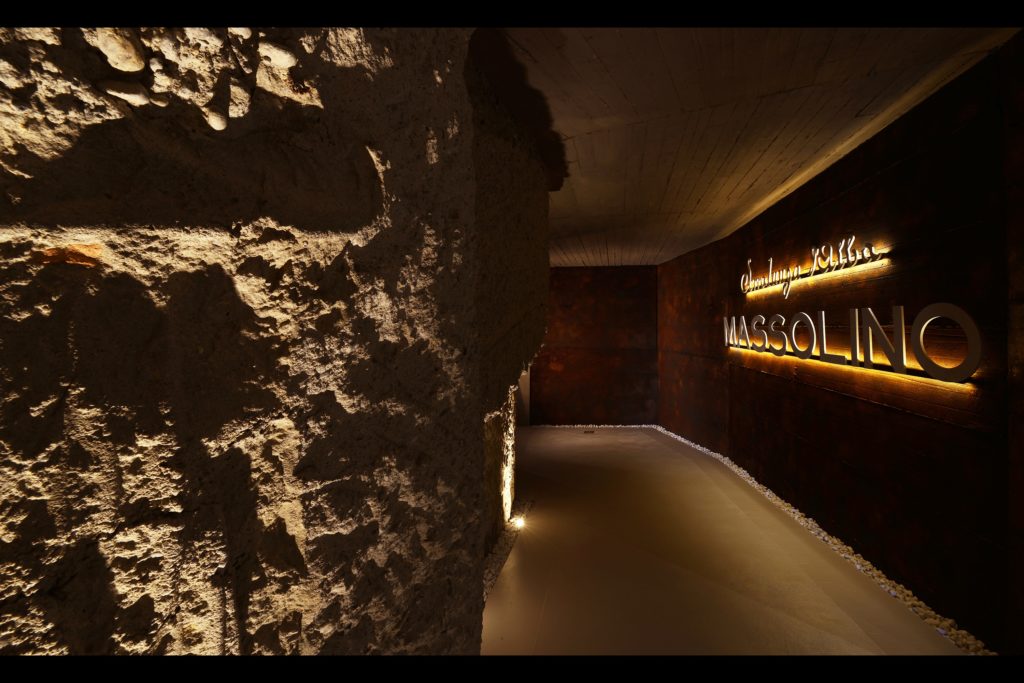
Massolino’s new cellar (Photo: courtesy of Massolino)
Michele Chiarlo
Over the years, Michele Chiarlo has cherry-picked vineyards across Langhe, Monferrato and Gavi. Tenuta La Court is perhaps the most representative of its estates, telling the story of a long-standing commitment to ennobling the Barbera variety. This was rewarded in 2014 with the achievement of DOCG certification for the Nizza label, which today features as one of the flagship reds in Chiarli’s extensive range. Tours and tastings include classic, premium and custom options, while a picnic experience is also available. Visitors can download a free audio guide to explore the rich collection of pop art installations scattered among the vineyards.
Strada Nizza-Canelli, 99, 14042 Calamandrana AT
Via Cocito, 30, 14040 Castelnuovo Calcea AT (Tenuta La Court)
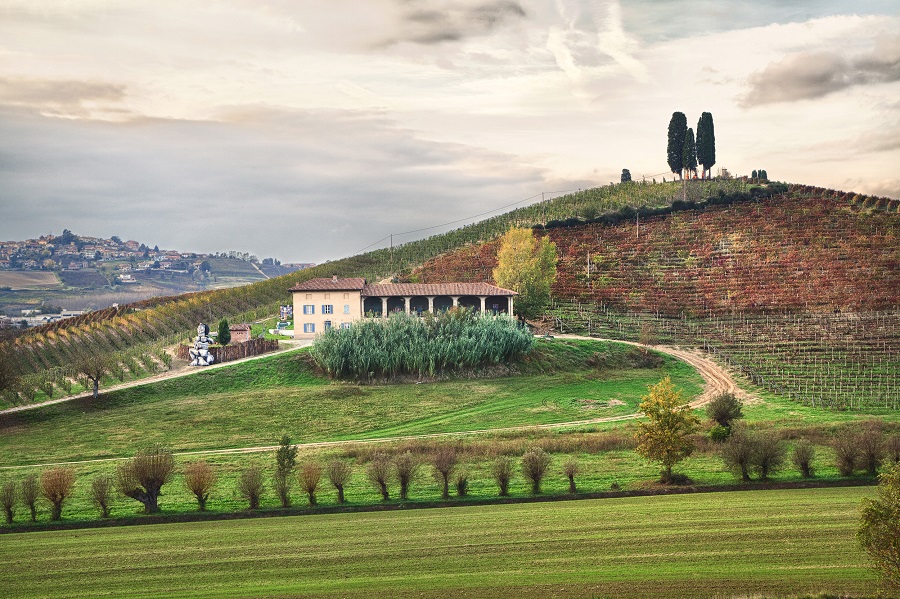
Art and vineyards at La Court Estate (Photo: Andrea Pesce, courtesy of Michele Chiarlo)
Podere ai Valloni
Podere ai Valloni is housed in a rural farmstead in northern Piedmont, which was restored along with the adjoining vineyards during the 1980s. It’s a certified organic winery capping its production at 10,000 bottles per year, prioritising quality and sustainability over quantity. The wine range features three reds of different structure and complexity, obtained from Nebbiolo blended with other grape varieties. Sitting in between the Sesia Valley and the d’Orta and Maggiore lakes, Podere ai Valloni makes for an excellent stopover while exploring the natural treasures nearby.
Str. della Traversagna, 1, 28010 Boca NO
Paolo Scavino
Another historic Langhe winery located near Barolo, Paolo Scavino celebrated its hundredth anniversary in 2021. Meticulous care of the vineyards and minimal intervention are at the core of their winemaking philosophy, which prioritises viticulture over oenology. Their terroirs amount to 30 hectares of land scattered across the region, each expressing its specific character. Elegance and complexity are recurring features in their wines – an extensive range dominated by Barolo varieties. Visits are available by appointment only.
Via Alba Barolo, 157, 12060 Castiglione Falletto CN
